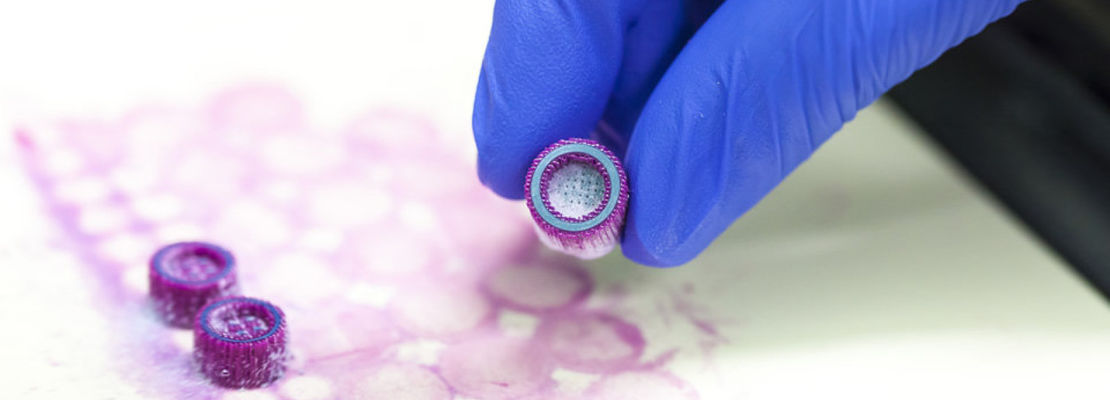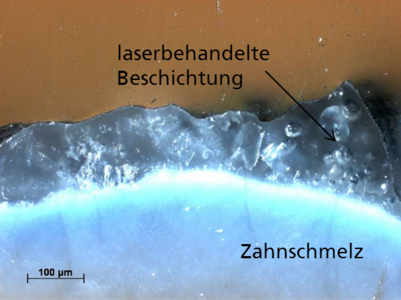ToothCoating
A new non-invasive preventive method in cariology
The aim of this project, financed by the German Research Foundation (DFG), is to test a novel non-invasive tooth surface coating procedure for achieving increased protection for caries and erosion on predilection tooth sites of patients at high risk for caries or exaggerated dental erosion. For this, a laser-based method is tested, which allows the transformation of materials applied on the tooth surface into a ceramic protective layer.
Through a fundamental understanding of the material modifications and chemical and structural changes at the dental hard tissues during the laser irradiation, it should be possible to achieve a strong connection between the surface of the natural teeth and the ceramic coating. The major challenge within this study plan is, however, to settle the dichotomy between the required high peak temperatures for a successful transformation of the particulate material into a homogeneous coating and very low heat stability of the tooth. A temperature increase of 5,5 K and above at the pulp leads already to irreversible tissue damage.
One of the approaches to address the challenges in the present project will be the use of a customized glass ceramic coating material that exhibits a significantly reduced melting temperature compared to a common ceramic material. Furthermore, the exact temporal and local controllability of the laser will allow a fine adjusting of the laser-induced temperature-time-profile, so that tooth damage can be avoided. Finally, the obtained coatings will be systematically tested using clinically similar carious, erosive, and mechanical challenges (in vitro and in situ) in order to investigate their clinical and preventive applicability.
This project is conducted in collaboration with two other academic partners.









